I struggled with how to do this blog post. This trip was so
educational for me. I learned a lot about Haiti, about the world, but
especially about myself. It would be impossible to summarize in one blog post.
So I thought I’d concentrate it to the thee big things I learned that truly did
change me.
But first…
Why exactly were you in
Haiti, Nik?
Haiti, Nik?
Quiet as it’s kept, Bariatric Foodie is not my only “job.”
My “day job” is as the staff writer for an organization that helps people
around the world fight poverty and build strong livelihoods (and proud as I am
of that work I will decline to name said organization because I like to keep my
BF life and my day job life somewhat separate – thank you for understanding!).
I traveled to Haiti to see our work there with coffee farmers and to document
that work in video. I traveled to the city of Cap Haitien, which is about 6
hours north of Port-au-Prince, not that far from the border to the Dominican
Republic. We also visited coffee farmers at two cooperatives, both high up in
the mountains about 3 hours further north.
My “day job” is as the staff writer for an organization that helps people
around the world fight poverty and build strong livelihoods (and proud as I am
of that work I will decline to name said organization because I like to keep my
BF life and my day job life somewhat separate – thank you for understanding!).
I traveled to Haiti to see our work there with coffee farmers and to document
that work in video. I traveled to the city of Cap Haitien, which is about 6
hours north of Port-au-Prince, not that far from the border to the Dominican
Republic. We also visited coffee farmers at two cooperatives, both high up in
the mountains about 3 hours further north.
Without further adieu, here are my three things.
With a little
support, you can overcome even the most difficult obstacles.
support, you can overcome even the most difficult obstacles.
This is a photo of two leaves from a coffee tree that was
struck by leaf rust, a disease that can kill coffee trees. Coffee farms all over the Caribbean and Central America have been affected by it. While I was in Haiti
I got to see and hear a lot about leaf rust. It’s a truly devastating disease.
It kills the branches of a coffee tree so it can’t produce “cherries” (little
berry-like fruits that contain coffee beans).
struck by leaf rust, a disease that can kill coffee trees. Coffee farms all over the Caribbean and Central America have been affected by it. While I was in Haiti
I got to see and hear a lot about leaf rust. It’s a truly devastating disease.
It kills the branches of a coffee tree so it can’t produce “cherries” (little
berry-like fruits that contain coffee beans).
To understand the full impact of that you have to know how
coffee farmers use coffee to support themselves. Think of it almost like the
reliability of your direct deposit in your bank account. Most farmers grow food
they can eat. Coffee provides cash for all those other little things you must
pay for like school fees for children, medical care and food to supplement what
you grow. Many coffee farmers lost 60% or more of their coffee crop to leaf
rust. That meant they saw a dramatic reduction in their income. Some dealt with
it by switching their kids to less expensive schools. They knocked back on their
amount of meals per day. It’s hard but folks are surviving.
coffee farmers use coffee to support themselves. Think of it almost like the
reliability of your direct deposit in your bank account. Most farmers grow food
they can eat. Coffee provides cash for all those other little things you must
pay for like school fees for children, medical care and food to supplement what
you grow. Many coffee farmers lost 60% or more of their coffee crop to leaf
rust. That meant they saw a dramatic reduction in their income. Some dealt with
it by switching their kids to less expensive schools. They knocked back on their
amount of meals per day. It’s hard but folks are surviving.
They are coping by putting more effort into growing food for
their families to eat but also testing out coffee plants that seem to resist
leaf rust. They aren’t panicking. They are being organized, addressing their
immediate needs and trying to recover for the future.
their families to eat but also testing out coffee plants that seem to resist
leaf rust. They aren’t panicking. They are being organized, addressing their
immediate needs and trying to recover for the future.
My Big Lesson: We
face those situations sometimes too. Things that want to derail us. Knock us
off of our big plan. I know in the past I’ve freaked about it. These farmers
taught me that the most effective way to deal with those situations is to
determine what you need most right now and work on that then, little by little,
work on getting back to where you used to be.
face those situations sometimes too. Things that want to derail us. Knock us
off of our big plan. I know in the past I’ve freaked about it. These farmers
taught me that the most effective way to deal with those situations is to
determine what you need most right now and work on that then, little by little,
work on getting back to where you used to be.
Accept your shortcomings, get out of your own way, and great things can happen!
I wish I could tell you the names of these little girls.
They are absolutely adorable (although this photo makes them look sort of
serious). On our second day of shooting, high in the mountains, I was taking a
quick break while our videographer got some footage of a coffee farmer’s house.
The village we were in had quite a few houses relatively near one another and
all had little kids laughing, playing, eating mangoes (from the trees in their
yards!).
They are absolutely adorable (although this photo makes them look sort of
serious). On our second day of shooting, high in the mountains, I was taking a
quick break while our videographer got some footage of a coffee farmer’s house.
The village we were in had quite a few houses relatively near one another and
all had little kids laughing, playing, eating mangoes (from the trees in their
yards!).
This little girl is six. Her sister is about two. And that
was about the only thing I understood that she said. In this region, Haitian
Creole is the first language. Kids learn French in school but she was a bit
young to know much French.
was about the only thing I understood that she said. In this region, Haitian
Creole is the first language. Kids learn French in school but she was a bit
young to know much French.
When she approached me she started asking questions
(universally I think our intonation is about the same when asking a question).
I think she was asking me what we were doing and about the cameras. I had our
local staff close by BUT they speak Creole and French but no English. I speak
English but no Creole and French. And I was stressed out about that for a
minute.
(universally I think our intonation is about the same when asking a question).
I think she was asking me what we were doing and about the cameras. I had our
local staff close by BUT they speak Creole and French but no English. I speak
English but no Creole and French. And I was stressed out about that for a
minute.
But then that sweet little girl smiled and started chatting
on, not really caring that our words didn’t match up. It was a magical moment
for me.
on, not really caring that our words didn’t match up. It was a magical moment
for me.
My Big Lesson: Accepting
your shortcomings is not the end of the world. I didn’t speak Creole and I wasn’t
going to try to butcher the language at that point. I also decided I wasn’t
going to feel bad about not speaking Creole. The little girl certainly didn’t
feel bad about not speaking English. And she also didn’t see it as a barrier to
making a new friend. I think I need to be like that more in life. Shortcomings
are a challenge, yes, but they don’t make or break my ability to survive a
situation.
your shortcomings is not the end of the world. I didn’t speak Creole and I wasn’t
going to try to butcher the language at that point. I also decided I wasn’t
going to feel bad about not speaking Creole. The little girl certainly didn’t
feel bad about not speaking English. And she also didn’t see it as a barrier to
making a new friend. I think I need to be like that more in life. Shortcomings
are a challenge, yes, but they don’t make or break my ability to survive a
situation.
You only get one life
and if it’s a damn shame if you waste it feeling bad about yourself.
and if it’s a damn shame if you waste it feeling bad about yourself.
I got this picture going up the mountain. Oh my goodness
there was so much to see! There were people working in the fields. There were
cows. There were pigs and chickens and baby goats that seemed to be playing tag
with one another. There were streams and flowers. And bugs, yes, bugs!
there was so much to see! There were people working in the fields. There were
cows. There were pigs and chickens and baby goats that seemed to be playing tag
with one another. There were streams and flowers. And bugs, yes, bugs!
But then there were also the mountains. I was awe-struck by
them. My photos don’t accurately capture the scale of these mountains. They
were majestic and beautiful. I have always loved mountains because they make
you realize how small you are relative to the universe. Our individual worlds
are so small that our problems sometimes seem to fill them up. The mountains
expand that world (at least for me) and put things into perspective.
them. My photos don’t accurately capture the scale of these mountains. They
were majestic and beautiful. I have always loved mountains because they make
you realize how small you are relative to the universe. Our individual worlds
are so small that our problems sometimes seem to fill them up. The mountains
expand that world (at least for me) and put things into perspective.
I could have focused on the bumpy ride it took to get up
that mountain (I banged my head on the top of our truck about 57 times and I’m
lucky I didn’t get a concussion!) but I was too busy being in awe of what was
going on around me. There were many moments like that on this trip, where folks
were having serious discussions and I just wanted to look out the window, drink
it all in.
that mountain (I banged my head on the top of our truck about 57 times and I’m
lucky I didn’t get a concussion!) but I was too busy being in awe of what was
going on around me. There were many moments like that on this trip, where folks
were having serious discussions and I just wanted to look out the window, drink
it all in.
My Big Lesson: Life
really is amazing, Foodies. And if you’re not careful, in the immortal words of
Ferris Bueller, “if you don’t stop and look around every once in a while, you
might miss it.”
really is amazing, Foodies. And if you’re not careful, in the immortal words of
Ferris Bueller, “if you don’t stop and look around every once in a while, you
might miss it.”
So there you have it. Three big things I learned while in
Haiti. I didn’t take a whole, whole bunch of pictures but I did get a few
shots. Here are my best ones. If you’d like to know anything more about the
trip, drop a comment. I’m happy to answer!
Haiti. I didn’t take a whole, whole bunch of pictures but I did get a few
shots. Here are my best ones. If you’d like to know anything more about the
trip, drop a comment. I’m happy to answer!
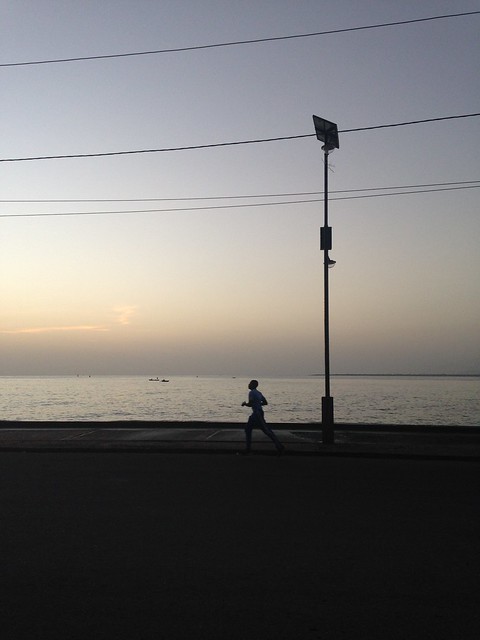 |
| Speaking of taking care of yourself…this is one lone jogger early in the morning. But by about 7 a.m. there are THRONGS of people – locals – jogging. Old people, young people, plump people, skinny people. Literally…there were dozens. It was inspiring!
There are even more pictures on my Flickr account. Feel free to check them out if you like!
|
 Bariatric Foodie Play with your food
Bariatric Foodie Play with your food
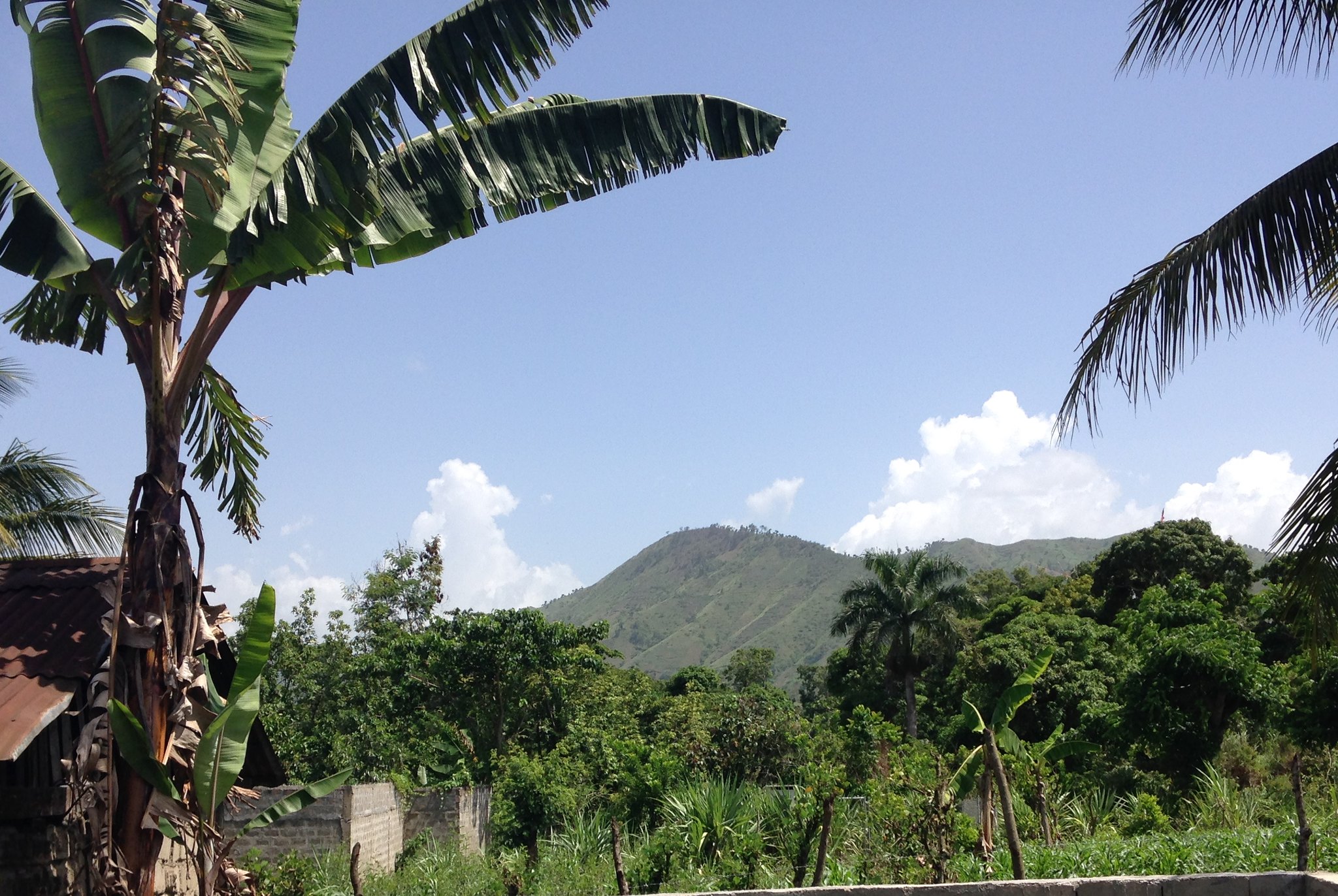
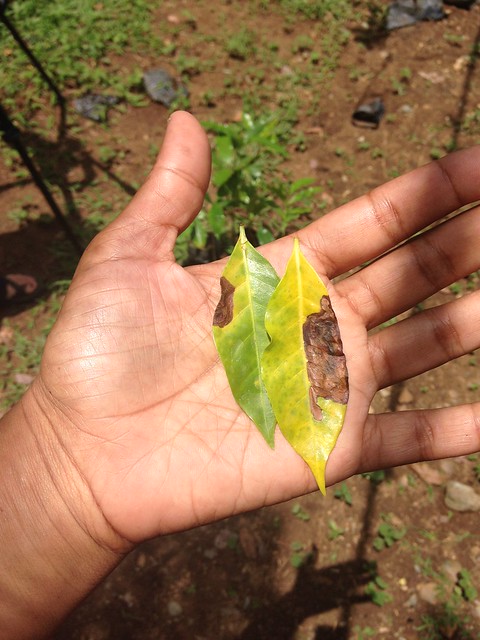
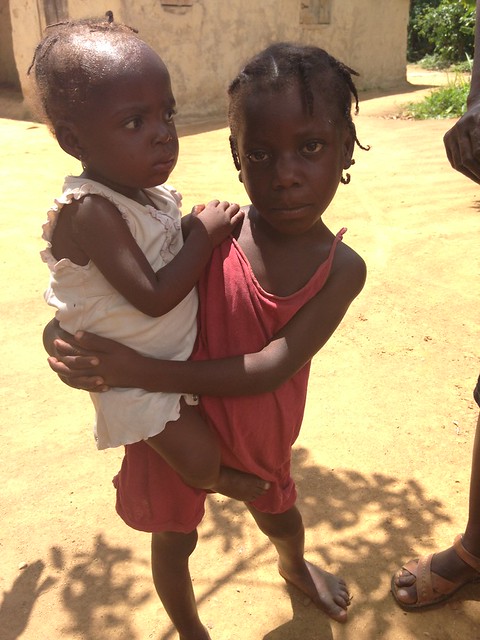
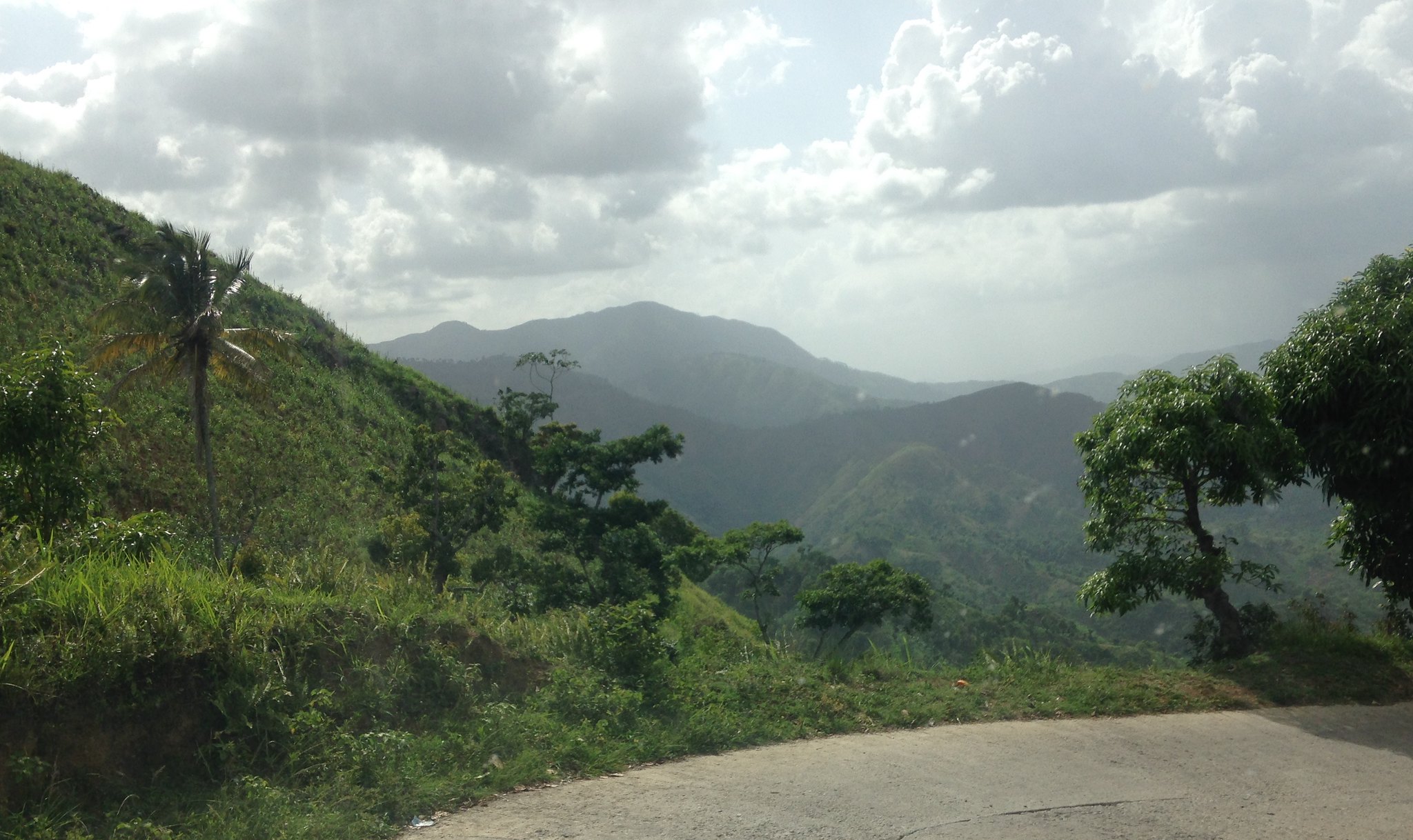
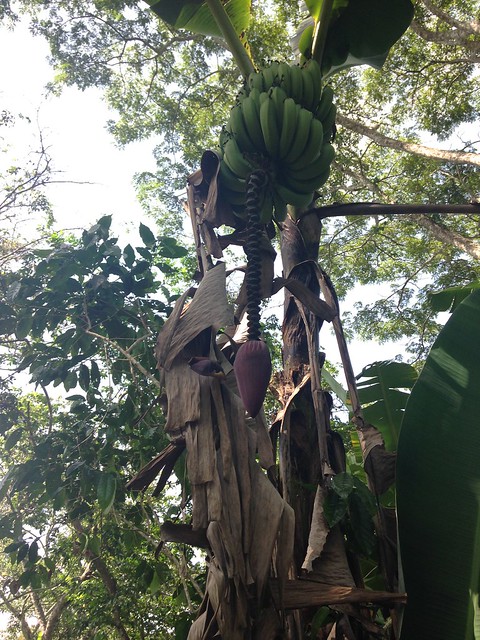
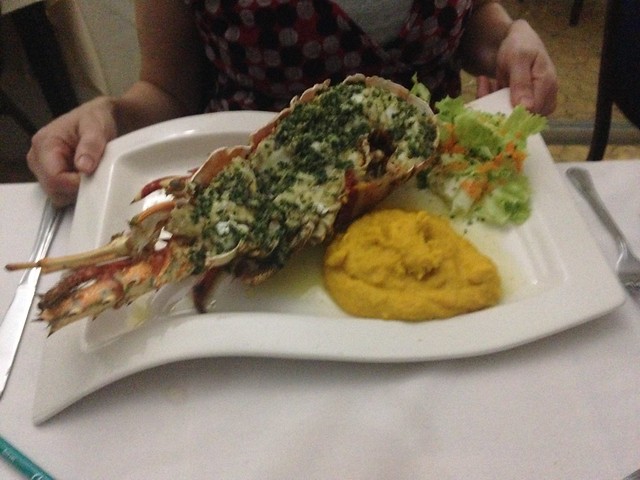
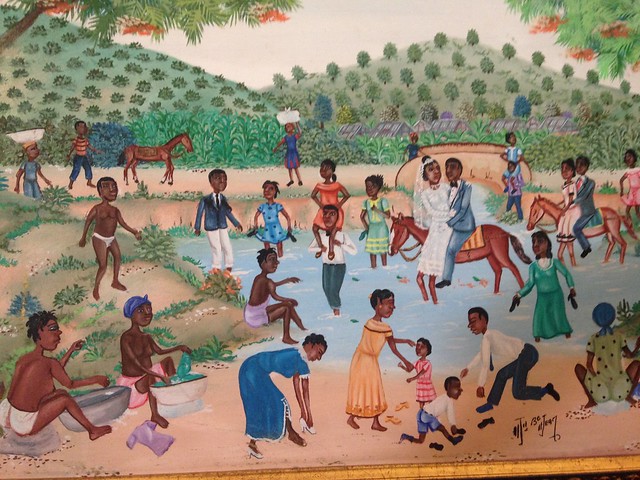
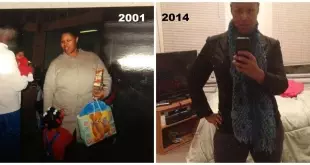
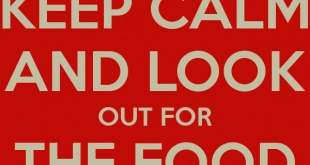
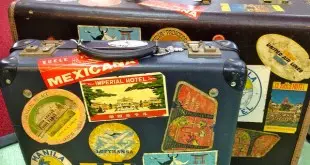
Very cool!